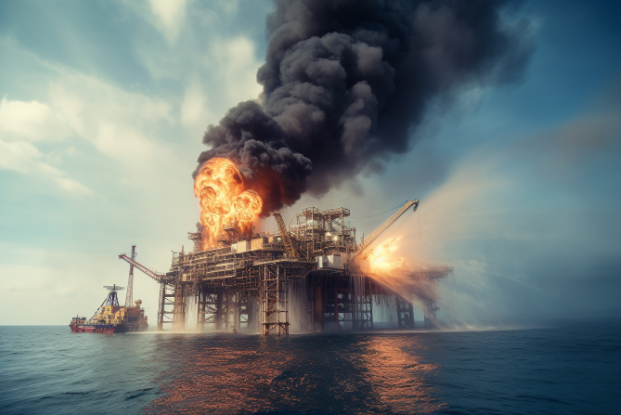Which of the Following is True of Spillage? Understanding the Impact of Spills

Spillage is an event that happens when liquids or materials are accidentally released from containers or storage spaces. Whether it’s oil, water, chemicals, or other substances, spillage can occur in a wide variety of settings, including factories, roads, and even homes. It’s important to understand the impact and dangers of spillage to prevent accidents and protect the environment. So, which of the following is true of spillage? In this article, we’ll break down the key facts about spillage, its effects, and how to deal with it safely.
The main concern about spillage is the potential harm it causes to the environment, public health, and even local wildlife. The most common types of spillage include liquid chemicals, hazardous waste, and even everyday items like milk or food. It’s essential to know the risks involved with spillage and what actions need to be taken. Let’s dive into the topic further and explore which of the following is true of spillage.
What Causes Spillage?
Spillage can happen for a variety of reasons. The most common causes include improper storage, human error, equipment failure, or accidents during transportation. For instance, if a container is overfilled or not sealed correctly, liquid can spill out. Equipment failures such as leaks in pipes or tanks can also result in spillage. Accidents involving trucks or ships can cause dangerous chemicals or oil to spill into the environment.
- Improper storage or handling of materials
- Human error or equipment failure
- Accidents during transportation, such as truck spills
The Dangers of Spillage
The impact of spillage can be severe depending on the material that has been spilled. For example, oil spills can contaminate water sources, destroy marine life, and pollute beaches.
One of the greatest dangers of spillage is contamination. Spilled materials can seep into soil or water, causing long-term damage. For example, if a pesticide is spilled on a farm, it can affect the soil and plants, potentially entering the food chain. Spillage can also cause fires or explosions if the material is flammable. This is why it’s essential to understand which of the following is true of spillage, so you can take the proper precautions and prevent harm.
- Oil spills can destroy marine life and pollute water
- Chemical spills can be toxic to human health
- Spilled materials can contaminate soil and water
How to Prevent Spillage
Preventing spillage is crucial to keeping the environment and people safe. One of the most effective ways to prevent spillage is proper storage. Containers should be securely closed and checked regularly for leaks. Additionally, safety equipment like spill containment pallets or barriers can help contain any accidental spills and stop them from spreading.
Another important method for preventing spillage is training. Workers should be trained to handle materials properly and know how to respond if a spill occurs. This includes knowing how to use spill kits, which contain absorbent materials, and how to safely dispose of the spilled material. By planning ahead and using the right safety equipment, the chances of a serious spill can be reduced.
- Proper storage and regular checks for leaks
- Using spill containment equipment like pallets or barriers
- Worker training on spill response and safety procedures
Cleaning Up After a Spill
Cleaning up after a spill can be a challenging task, especially if the material is hazardous. The first step in cleaning up any spill is to assess the situation and determine what material has been spilled. For non-hazardous spills, such as water or food, you can clean them up quickly using towels or mops. However, for hazardous materials like chemicals or oil, special tools and safety equipment are required.
In industrial settings, workers should follow specific procedures based on the type of material spilled. This includes wearing protective gear like gloves, masks, and goggles to avoid exposure to harmful substances. Once the spill is cleaned, the waste must be properly disposed of, following environmental guidelines to prevent further contamination.
- Assess the type of material spilled and its risks
- Use absorbent materials and safety gear to clean up
- Proper disposal of hazardous waste to avoid further harm
Conclusion
In conclusion, which of the following is true of spillage? Spillage can cause serious environmental damage, harm human health, and threaten wildlife. It is important to know the causes and risks of spillage so we can prevent accidents and reduce their impact. Whether it’s oil, chemicals, or other substances, taking preventive measures, using safety equipment, and ensuring proper training are key to avoiding and managing spills.
The effects of spillage can be devastating, but by understanding the risks and taking action to prevent accidents, we can reduce their harm. Spill response requires knowledge, care, and the right equipment. So, whenever you are handling materials, it’s essential to follow safety protocols and stay informed about which of the following is true of spillage to protect yourself, others, and the environment. With these precautions in place, we can ensure a safer and cleaner world.
FAQs
Q: What is the main cause of spillage?
A: Spillage is most commonly caused by improper storage, human error, or equipment failure, such as leaks in containers or pipes.
Q: How dangerous is a chemical spill?
A: Chemical spills can be very dangerous because they can release toxic fumes, cause contamination, and harm human health if not cleaned up properly.
Q: What should you do if you witness a spill?
A: If you witness a spill, you should report it immediately and, if it’s safe, take action to contain it using available safety equipment.
Q: Can spillage be prevented?
A: Yes, spillage can be prevented with proper storage, regular checks for leaks, and by using spill containment equipment and training workers on safety procedures.
Q: What is a spill kit?
A: A spill kit is a collection of tools and materials used to clean up spills, including absorbent pads, gloves, and containers for proper disposal of waste.



